Nowadays, we can’t remove the word “Digital”in our daily life.The term “digital” refers to the use of technology, specifically involving electronic devices and computerized systems that process and transmit information in the form of discrete elements known as digits.
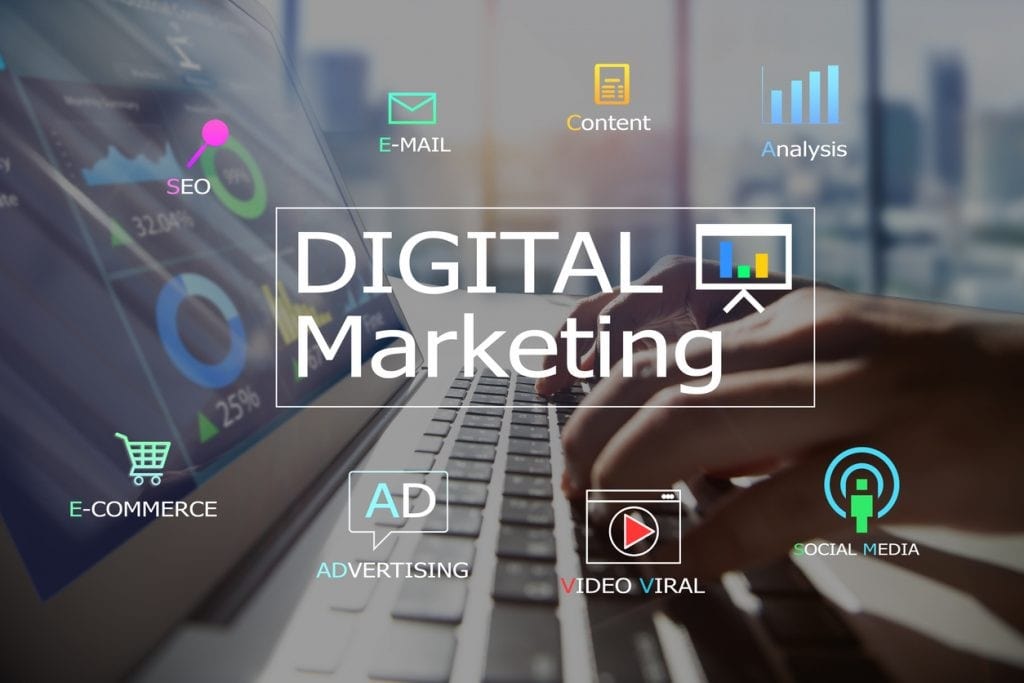
The vast landscape of the internet, understanding the basics of digital marketing is like having a compass to navigate through the digital realm.
This guide aims to simplify the journey into digital excellence by exploring the fundamental strategies that can elevate your online presence.
Whether you’re a business owner, a content creator, or someone curious about the digital world, this exploration into the basics of digital marketing will provide you with valuable insights and practical tips.
Table of Contents
The Foundation of Digital Marketing on the basics of digital marketing

The foundation of digital marketing rests on the fundamental principles of leveraging online platforms and technologies to connect with a target audience, drive brand awareness, and promote products or services.
Digital marketing encompasses a diverse range of channels, each playing a unique role in reaching potential customers effectively.
One key element in the digital marketing landscape is Search Engine Optimization (SEO), which involves optimizing a website’s content to improve its visibility on search engine results.
A well-executed SEO strategy ensures that a business ranks higher in relevant searches, increasing the likelihood of attracting organic traffic.
Social media marketing is another integral aspect, utilizing platforms like Facebook, Instagram, Twitter, and LinkedIn to engage with audiences on a personal level.
By creating compelling content and fostering interactions, businesses can build a strong online presence, connect with their target demographic, and cultivate brand loyalty.
Email marketing remains a stalwart in digital communication. It involves sending targeted messages directly to the inbox of potential customers, providing them with valuable information, promotions, and updates.
Effective email marketing relies on segmentation and personalization, ensuring that messages resonate with specific audience segments.
Furthermore, content marketing plays a pivotal role in digital strategies. Creating and distributing valuable, relevant, and consistent content across various channels establishes authority and credibility within a particular industry, attracting and retaining a loyal audience
Analytics is the backbone of digital marketing, offering insights into campaign performance and user behavior.
By tracking key metrics, such as website traffic, conversion rates, and engagement levels, marketers can refine their strategies and make data-driven decisions to optimize results.
Understanding these basics enables marketers to craft cohesive and effective digital marketing strategies.
The dynamic nature of the digital landscape requires continuous adaptation and learning, making it essential for professionals to stay abreast of emerging trends and technologies.
With a solid foundation in these core principles, businesses can navigate the complexities of the online environment, ensuring they remain competitive and capable of reaching and resonating with their target audience effectively.
Crafting a Compelling Online Presence on the basics of digital marketing

Crafting a compelling online presence is a multifaceted endeavor crucial for individuals and businesses alike in the digital landscape. It begins with a clear definition of one’s identity, encompassing values, mission, and unique attributes.
A professionally designed website serves as the virtual storefront, requiring both aesthetic appeal and functionality.
Optimizing for search engines ensures visibility, while engaging in social media fosters direct connections with the audience.
Content marketing, featuring a mix of blog posts, videos, and other formats, establishes expertise and addresses the audience’s interests. Building relationships through networking, both with influencers and within communities, adds a personal touch.
Visual branding elements, from logos to color schemes, should remain consistent across platforms.
Monitoring and managing online reputation, responding to feedback promptly, and staying consistent in messaging contribute to a positive online image.
Regular analytics assessment guides refinements, ensuring that the online presence remains dynamic and effective.
Crafting a compelling online presence is an ongoing process, requiring attention to detail and adaptability in an ever-evolving digital landscape
Crafting a compelling online presence is foundational in digital marketing, serving as the gateway to successful brand engagement. It involves strategically presenting a brand’s identity, values, and offerings to captivate and resonate with the target audience.
Firstly, an effective website is paramout. A seamless navigation experience enhances user engagement, fostering a positive perception of the brand.
Content creation is equally vital. Regularly publishing relevant, valuable, and shareable content establishes authority in the industry, attracting and retaining an audience. This can take the form of blog posts, social media updates, videos, or other multimedia content.
Social media platforms play a pivotal role in building an online presence. Leveraging these channels allows brands to connect directly with their audience, share updates, and humanize the brand. Consistent branding across platforms reinforces brand identity and credibility
The Power of Content: Words That Connect
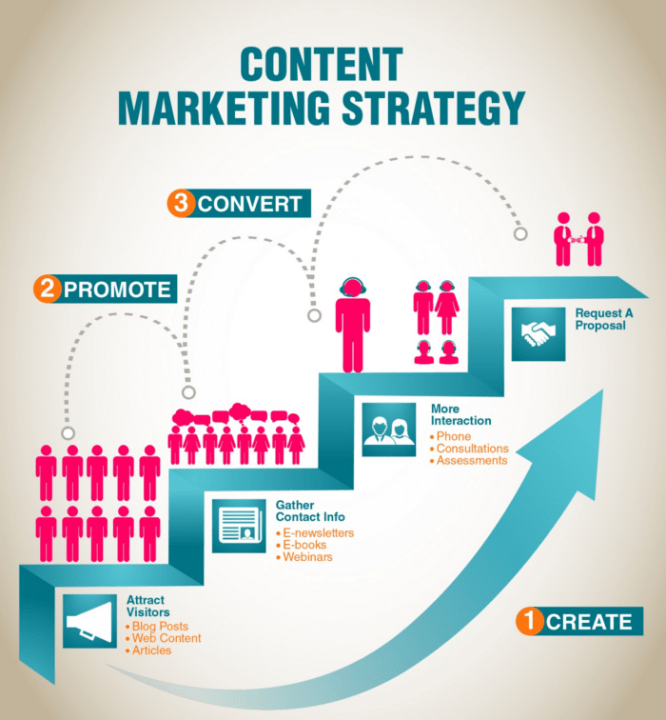
The power of content lies in its ability to forge meaningful connections through carefully chosen words.Content, whether expressed in articles, blogs, or social media posts, serves as a bridge between creators and their audience.
When words are thoughtfully crafted, they have the potential to resonate, inspire, and evoke emotions.Compelling content not only informs and educates but also establishes a rapport, creating a sense of trust and authenticity.
It transcends the transactional and strives for a genuine engagement, fostering a community around shared values and interests.
In a world inundated with information, the power of content lies in its capacity to cut through the noise, leaving a lasting impression and fostering a bond that extends beyond the immediate consumption of information.
It’s the art of storytelling and expression that transforms words into a conduit for connection, influencing perspectives, and shaping relationships in the digital realm.
Navigating the Social Media Landscape on the basics of digital marketing

Within the basics of digital marketing, social media emerges as a bustling marketplace in the digital world.
This chapter serves as your guide to navigating the social media landscape, emphasizing the importance of understanding how different platforms operate within the basics of digital marketing.
Explore the best practices tailored to each platform, and grasp how to leverage social media effectively within the basics of digital marketing.
Learn how to utilize these platforms to not only build brand awareness but also foster a personal connection with your audience.
Cracking the Code of SEO

In the basics of digital marketing, SEO, which stands for Search Engine Optimization, becomes the linchpin for online discovery. This chapter is dedicated to demystifying the basics of SEO within the basics of digital marketing.
Dive into the fundamentals, understanding how to optimize your content to ensure that search engines, within the basics of digital marketing, can effortlessly locate and recommend it to users.
Explore the significance of keywords, meta tags, and other SEO essentials within the basics of digital marketing, all of which play a crucial role in enhancing your website’s visibility.
Email Marketing Essentials

Email marketing essentials encompass a range of crucial elements that collectively contribute to the success of an email campaign.
Building and managing permission-based email lists is foundational, ensuring recipients have willingly opted in.Crafting compelling content with clear, concise copy and visually appealing design captures attention.
Personalization through addressing recipients by name and tailoring content enhances engagement. Responsive design accommodates diverse devices, especially mobile platforms.Strong calls-to-action guide recipients, while continuous testing and optimization refine strategies.
Automation facilitates timely, targeted communications, and adherence to data protection regulations is paramount for trust and compliance.
Analytics provide insights, helping marketers gauge campaign effectiveness, and an easy opt-out mechanism respects recipient preferences.
These essentials collectively empower businesses to create impactful email marketing campaigns that foster connections, drive conversions, and maintain regulatory compliance
Understanding Digital Analytics

Understanding digital analytics is essential for businesses seeking to make informed decisions and optimize their online presence.
Digital analytics involves the collection, measurement, analysis, and interpretation of data from various digital platforms and channels.It provides insights into user behavior, website performance, and the effectiveness of marketing efforts.
Key metrics such as website traffic, user engagement, conversion rates, and customer demographics help businesses assess the impact of their online strategies.
Tools like Google Analytics, Adobe Analytics, or others track and visualize this data, offering a comprehensive view of how users interact with digital assets.
By interpreting these analytics, businesses can refine their digital marketing strategies, improve user experiences, identify areas for growth, and ultimately enhance their online performance.
Digital analytics serves as a valuable compass, guiding businesses towards data-driven decisions that contribute to overall success in the dynamic digital landscape.
Paid Advertising: Reaching New Heights

Within the basics of digital marketing, while organic strategies are indispensable, incorporating paid advertising can provide an extra boost to your efforts.
This chapter delves into understanding the basics of paid advertising, covering various platforms from social media ads to Google Ads, all within the basics of digital marketing.
Gain insights on how to set budgets effectively, target the right audience, and measure the ROI of your paid campaigns within the basics of digital marketing, ensuring a strategic and well-informed approach to enhancing your online presence.
Paid advertising is a crucial facet of digital marketing, propelling businesses to new heights by strategically investing in online platforms to reach a wider audience.
This method involves paying for ad placements on various channels like search engines, social media, and websites.
Pay-per-click (PPC) campaigns on search engines, such as Google Ads, enable businesses to appear prominently in search results, driving targeted traffic to their websites.
Social media platforms like Facebook and Instagram offer paid advertising options that allow businesses to reach specific demographics based on user interests, behaviors, and demographics.
These targeted ads enhance visibility and engagement. Display advertising on websites showcases visually appealing banners or videos to capture audience attention.
Successful paid advertising campaigns leverage compelling content, precise targeting, and constant monitoring of performance metrics to maximize return on investment and elevate a brand’s digital presence effectively.
Paid advertising is a dynamic and essential facet of digital marketing, propelling businesses to new heights by strategically promoting products or services to a targeted audience. This method allows brands to amplify their visibility and reach beyond organic efforts, ensuring a broader market presence and potential customer acquisition.
One of the primary platforms for paid advertising is pay-per-click (PPC) advertising, where advertisers pay a fee each time their ad is clicked. Google Ads, for instance, displays ads at the top of search engine results pages, directly reaching users actively searching for related products or services. Social media platforms like Facebook, Instagram, and LinkedIn offer sophisticated ad targeting options, allowing businesses to tailor their campaigns based on demographics, interests, and behaviors.
Paid advertising provides immediate visibility and can be precisely tracked and measured. Analytics tools enable marketers to assess the performance of their campaigns, including click-through rates, conversion rates, and return on investment (ROI). This data-driven approach allows for continuous optimization, ensuring that resources are allocated efficiently to maximize results.
Remarketing is another powerful strategy within paid advertising. It involves targeting users who have previously interacted with a brand but didn’t convert. Displaying tailored ads to this audience as they browse other websites or social media platforms helps reinforce brand awareness and encourages them to revisit the site.
However, successful paid advertising requires careful planning, keyword research, compelling ad creatives, and constant monitoring. Advertisers must stay abreast of industry trends, audience behavior, and platform algorithms to adapt their strategies effectively.
In essence, paid advertising is a dynamic and results-oriented approach that, when executed strategically, catapults businesses to new heights by expanding their online visibility, driving targeted traffic, and ultimately, achieving business objectives.
Mobile Optimization for Today’s Audience

In the basics of digital marketing, the digital world deems data as your ally.
This chapter is devoted to comprehending the basics of digital marketing through understanding digital analytics and how it plays a pivotal role in informing your marketing decisions.
Learn within the basics of digital marketing how to adeptly interpret website analytics, social media insights, and other data sources.
This knowledge becomes paramount in measuring the success of your digital marketing efforts within the basics of digital marketing, allowing you to make informed adjustments for continued improvement and strategic refinement.
Mobile optimization is crucial in today’s digital landscape as an increasing number of users rely on smartphones for online activities. With a rapidly growing mobile audience, ensuring that websites and applications are optimized for mobile devices is imperative.
In a world where people are constantly on the go, mobile optimization enhances user experience by providing seamless navigation, faster load times, and responsive design. This adaptation is not just about aesthetics; it directly impacts user engagement and conversion rates.
Search engines also prioritize mobile-friendly content, influencing website rankings. Therefore, businesses must prioritize mobile optimization to remain competitive in the online sphere. Responsive design, streamlined content, and efficient navigation contribute to a positive user experience, fostering customer loyalty and satisfaction.
Furthermore, mobile optimization aligns with changing consumer behaviors, meeting the expectations of an audience that demands convenience and accessibility. Whether it’s an e-commerce site, a blog, or a service platform, catering to the mobile audience ensures broader reach and relevance in today’s dynamic digital landscape.
Overall, mobile optimization is an essential strategy for businesses seeking to thrive and connect with the ever-expanding mobile-centric consumer base.
Ethical Considerations in Digital Marketing
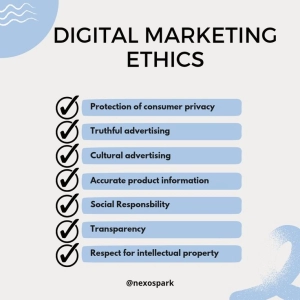
In concluding our exploration within the basics of digital marketing, let’s delve into the ethical considerations integral to digital marketing strategies.
Understand the importance, within the basics of digital marketing, of transparency, privacy, and building trust with your audience.
Explore how ethical practices, firmly rooted in the basics of digital marketing, not only positively impact your brand reputation.
But also play a pivotal role in contributing to long-term success within the dynamic and evolving digital landscape.
Embarking on the journey of exploring digital excellence within the basics of digital marketing is a transformative experience.
From defining your online presence to mastering the nuances of SEO and paid advertising, this guide within the basics of digital marketing has equipped you with the knowledge and tools needed to thrive in the digital world.
Remember, digital marketing is a dynamic field, so stay curious, adapt to changes, and continue refining your strategies for ongoing success within the ever-evolving basics of digital marketing landscape.
Ethical considerations in digital marketing are of paramount importance in an era where online interactions play a central role in business promotion. Upholding ethical standards not only fosters trust among consumers but also ensures the long-term sustainability and reputation of a brand.
Transparency is a cornerstone of ethical digital marketing. Businesses must be forthright about their products, services, and pricing. Providing accurate and clear information helps build trust with consumers, leading to a more positive brand perception.
Respecting user privacy is a critical ethical consideration. As data plays a pivotal role in digital marketing, it is crucial to obtain explicit consent before collecting, storing, or utilizing personal information. Adhering to data protection regulations and clearly communicating privacy policies are essential in maintaining consumer trust.
Honesty in advertising is another ethical imperative. Exaggerated claims, false advertising, or misleading information can damage a brand’s reputation and erode consumer trust. Businesses should strive for authenticity and accuracy in their marketing communications to foster a genuine connection with their audience.
Targeting vulnerable populations or employing manipulative tactics raises ethical concerns. Digital marketers must be cautious about exploiting psychological triggers or employing deceptive practices to influence consumer behavior. Fair and respectful engagement is key to maintaining ethical standards.
Safeguarding against discrimination is also vital. Advertisers should avoid discriminatory practices based on factors such as race, gender, age, or socioeconomic status. Inclusive and diverse marketing efforts contribute to a more ethical and socially responsible digital landscape.
Social responsibility extends to how businesses use digital platforms. Avoiding the spread of misinformation, engaging in fair competition, and contributing positively to the online community are ethical imperatives. Companies should strive to be responsible digital citizens and actively work towards the betterment of the online environment.
In conclusion, ethical considerations in digital marketing are foundational to building and maintaining a positive brand image. Upholding transparency, respecting user privacy, practicing honesty in advertising, avoiding manipulative tactics, and promoting social responsibility contribute to a digital marketing landscape that is ethical, trustworthy, and sustainable.
Conclusion For The Basics of Digital Marketing
In short, digital marketing is a big deal for businesses today. We’ve seen that knowing your audience, creating great content, and using online platforms wisely can make a huge difference. It’s not just important—it’s essential for staying competitive.
And since digital marketing is always changing, it’s not just about what works now. It’s also about being open to new ideas and keeping up with the latest trends.
So, to sum it up: in the digital world, focusing on giving value, staying relevant, and being authentic will always be your best bet for success.




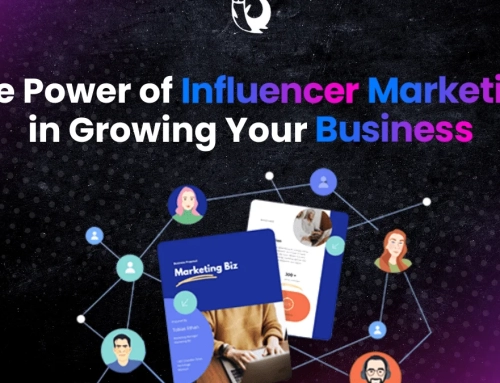

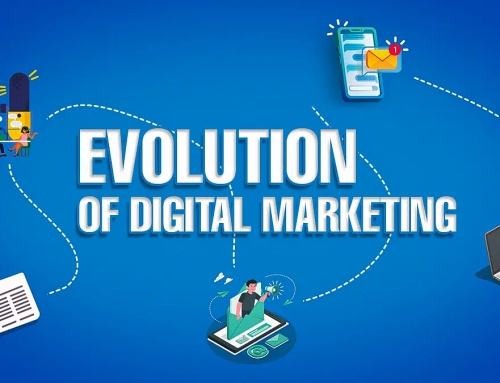


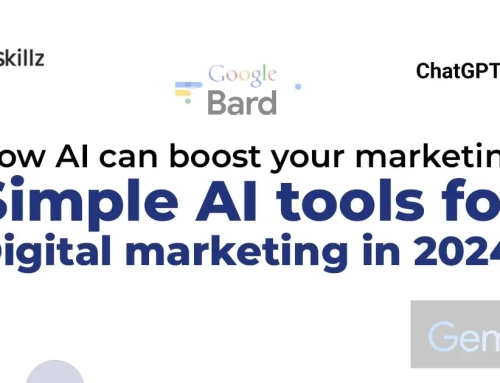

Leave A Comment